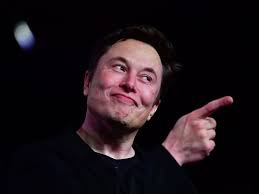The Magic Of Leverage
The true reason people get rich
If you are 5% better at the same job than I am — how much should you be paid more?
A few thousand a year?
What if it’s TEN MILLION DOLLARS?
Legit.
If you have the leverage.
Leverage underpins our global economy and fuels our capitalistically structured business world.
Leverage gives rise to multi-million CEO salaries, amorally high investment banker bonuses, unicorn startup valuations — even the Jeff Bezoses of the world.
The more leverage you have, the more your skills matter — and the more your effort will pay off.
💭 Elon Musk’s Admiration
Imagine this: the CEO of, let’s say, Volkswagen (the car company) decides how to invest $3bn (billion) next year in order to finally get accepted into the exclusive club of futuristic electronic vehicle manufacturers and not get ridiculed by its president, Elon Musk (Tesla), anymore.
If Volkswagen puts the $3bn to good use and develops a really cool fleet of EVs, they might make $5bn or so over the next couple of years (and, most importantly, earn Elon’s respect).
Now, oversimplified, if another CEO only made a 5% better decision, the company would make $250m (5% of $5bn) more.
Ignoring the moral questions of paying gigantic salaries for a moment — shouldn’t the second CEO make at least tens of millions more in salary (even if they’re only 5% better)?
⚖️ More With Less
Another way to think about leverage in a work, business and economy context is that it mediates the relationship between input and outcome.
Input can be your working hours or the resources a company invests into developing a product.
Outcome very often is some form of monetary reward (e.g. a salary or revenue).
Now, with more leverage, the relationship between what you put in and what you get out changes.
The more leverage you have, the more outcome you will get for the same input.
With enough leverage, you can even decrease your input and still get out more.
But what exactly is leverage now and how do I get more of it?
🚀 Typical Forms Of Leverage
While the concrete form of leverage depends on the context, three of the most relevant versions are:
Money
People
Direction
💰 Money
The more money you move with any particular action, the more leverage you have.
A 10% return on a $100m investment portfolio equals $10m.
A 10% return on a $20m investment portfolio equals $2m.
If a portfolio manager’s salary is tied to the total earnings, she will earn 5x as much (outcome) if she has money leverage with more assets under management — even if the work she has to do and the decisions she makes (input) are the same (clicking buttons and trading stocks).
👥 People
The more people you reach with your product or service, the more leverage you have. In the business and especially startup world, you call this scale.
When 10m people (leverage) download, use and pay for my app, I will make a lot more revenue (outcome) compared to when only 1m people do it — even if the effort for creating the app in the first place (input) is pretty much the same.
In that sense, one could argue that a big reason for that a nurse usually does not make a lot of money is simply because they do not have people leverage. They can only take care of one or a few people at a time. This doesn’t say anything about the effort they put in or the value they create in the lives of the people they take care of — there simply aren’t enough people they create enough value for in order to make a lot of money.
On the other hand, Jeff Bezos didn’t get so extremely rich because he is the hardest worker the world has ever seen (although he probably doesn’t slack around that much) — it’s because he has created enough value for A LOT of people through Amazon. He has extreme leverage.
Now, note that this is an (oversimplified) description of how capitalism works, not an assessment of whether that’s good or not (it obviously isn’t in some cases — but that’s for another time).
🎯 Direction
The third and least intuitive version of leverage is direction. The more my decision making (input) influences where we will end up (outcome), the more leverage over the whole process I have.
Very often, early directional decisions tend to have a lot of leverage. Think of two planes starting from JFK airport in New York City. Even if the direction their noses point into are just a few degrees apart at take-off, they will end up in completely different countries once they reach Europe.
Likewise, early decision-making in strategic projects (for example, what to focus on and what to ignore) has a lot of leverage over the outcome the whole process creates for the company. In a similar way, an organization’s leader and their behavior creates a whiplash effect through all layers and hierarchies of the company. Leverage.
Now, the question is, how can you use leverage for yourself?
Simply put, if you want to make more money (which you might want to question in the first place), look for positions in which your actions impact more people, shift around more money or have an impact early in the process.
Note that more leverage often comes with more risk (f***ing up usually means more damage as well) as well as a higher stress-level.
The most extreme form of this is entrepreneurship. Maximal leverage (a combination of money, people and direction) comes with a lot of risk and usually a lot of stress.
🌐 Also, if you want to optimize for leverage (which I don’t recommend) when choosing an industry to go into, remember this:
Both money and people leverage are maximized through global connection (internet) and effortless replication of products (digital).
The End.
To Leverage,
Phil







